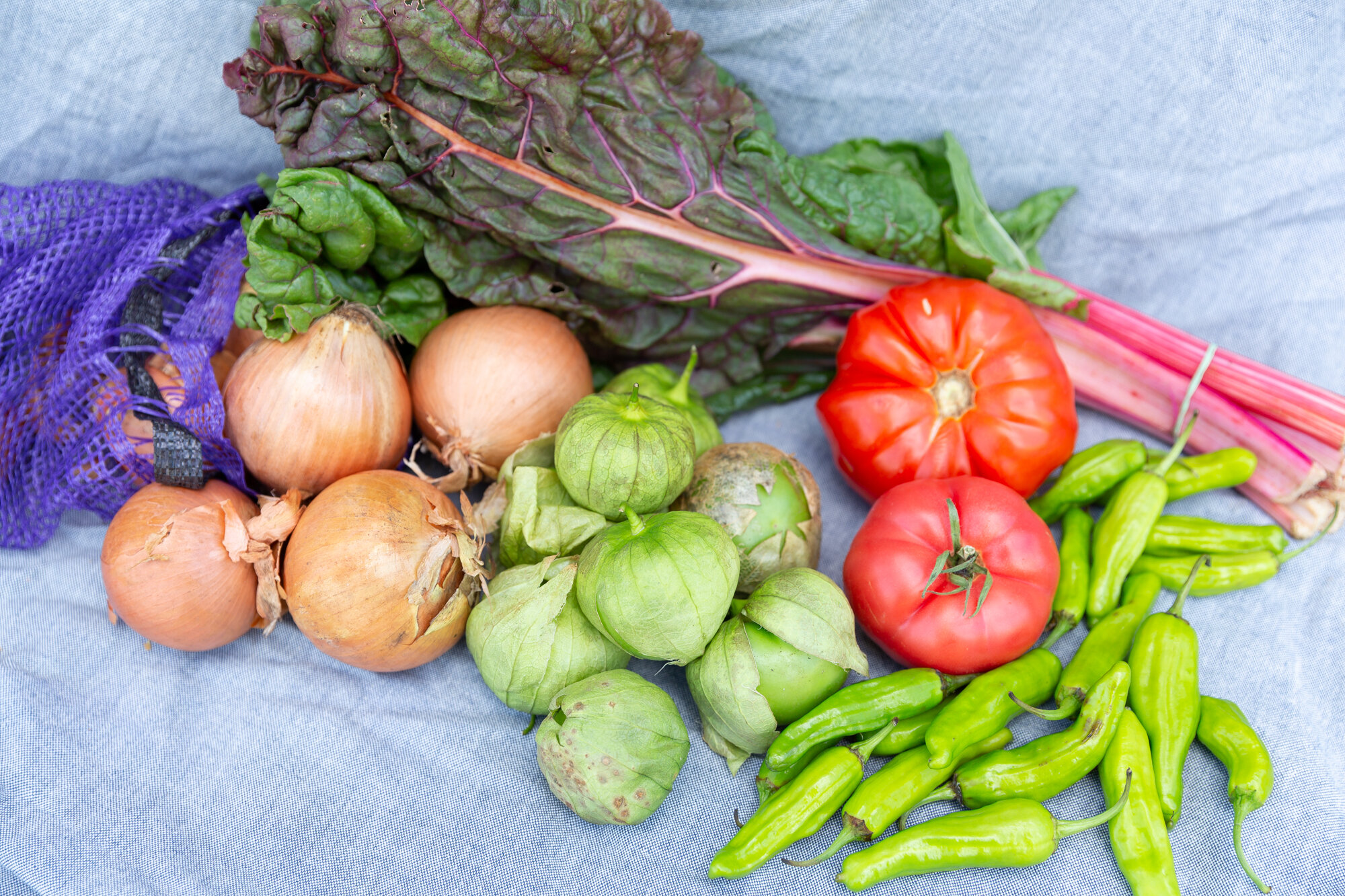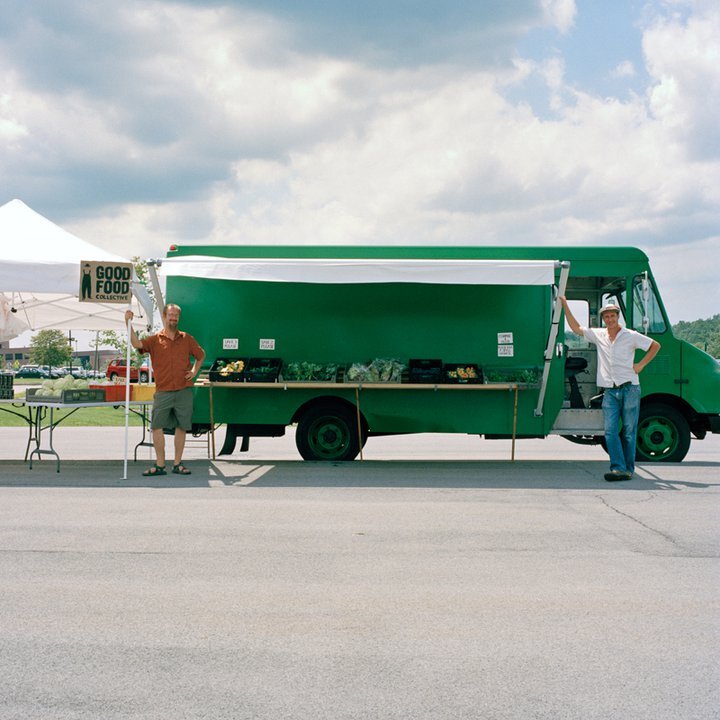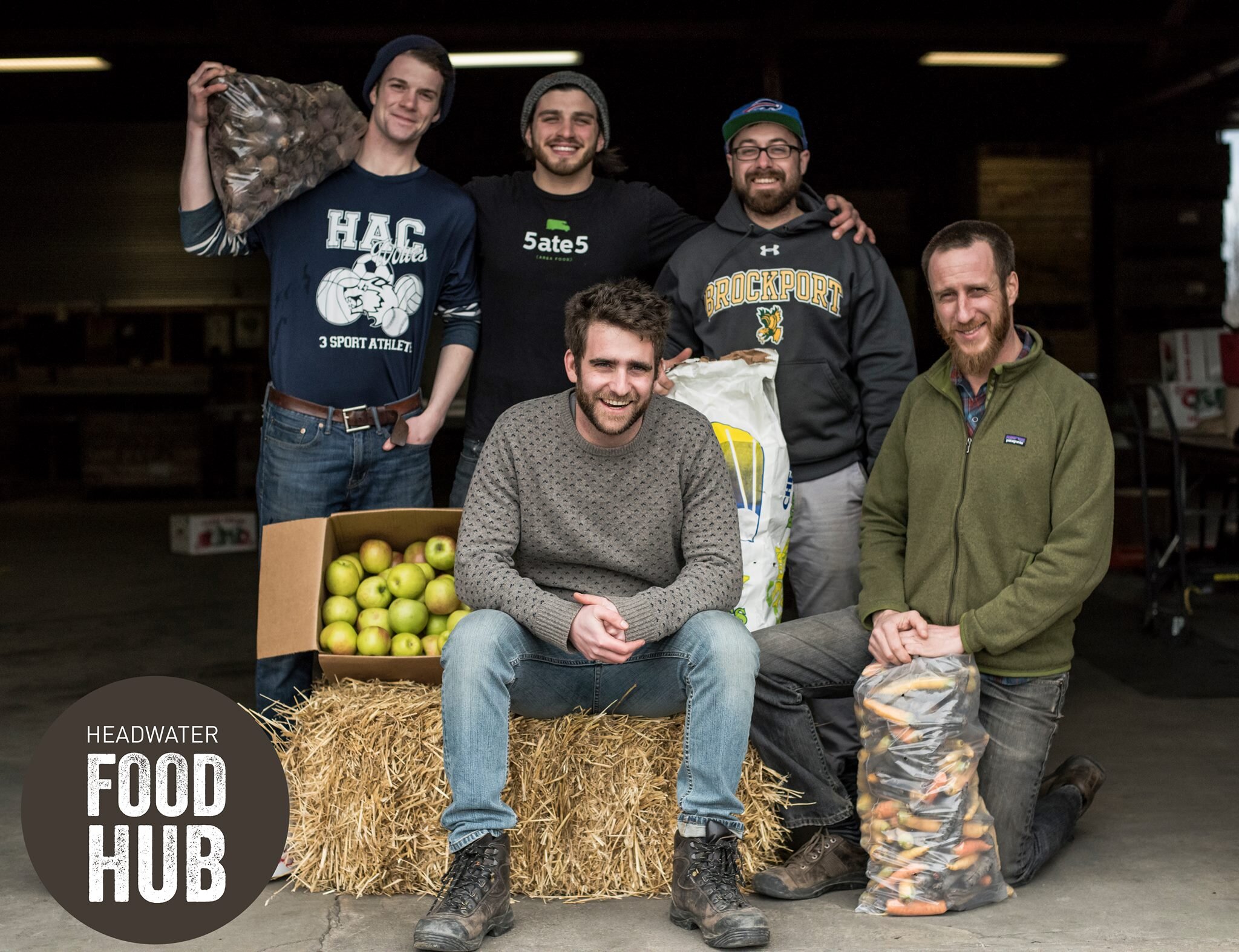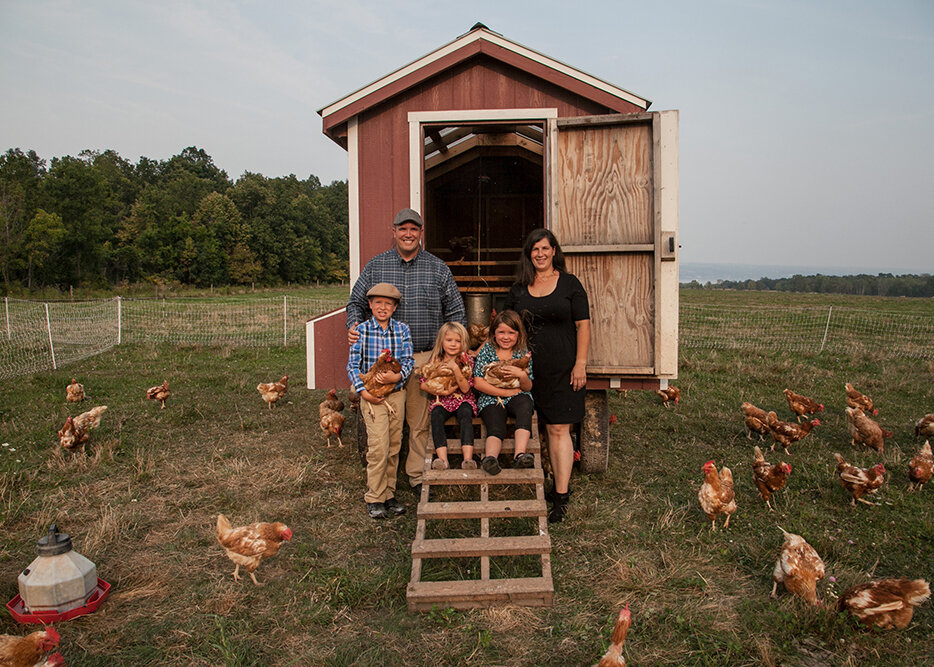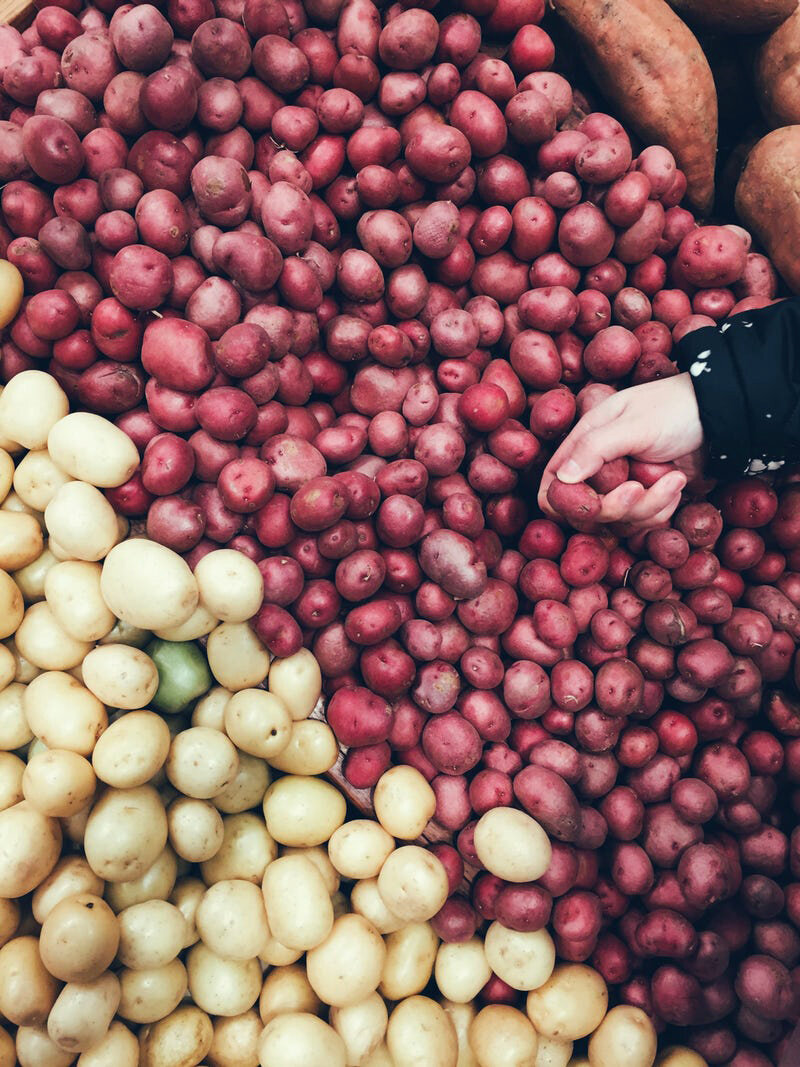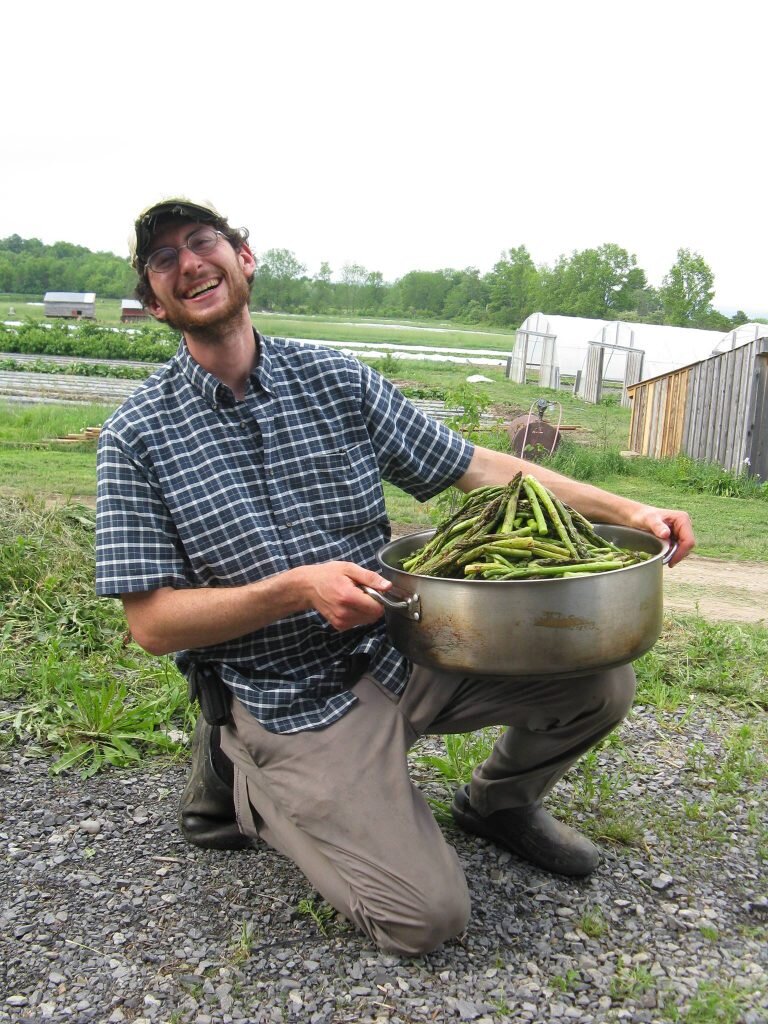Food Hubs
This article was written by contributor Anna Birn. Read about Anna here.
If you live in a young trendy city, you've probably heard the phrase “food hub,” even if you aren't exactly sure what it entails. Regional Food Hubs, are “businesses which buy, aggregate, market and distribute local and regionally grown food,” according to the USDA. Even if I knew the definition of a food hub, I didn't actually understand their importance until I started working at Headwater Food Hub, based in Rochester NY. I joined the team here in July of 2020 (peak pandemic) and have managed the direct-to-consumer branch of the organization ever since. Over the past year I’ve had the privilege of working with a variety of stakeholders all along the supply chain- essentially every food systems scientist's dream! I’ve worked closely with CSA farmers, food pantry operators, and more consumers than I can count. I've seen first hand how Regional Food Hubs can support a better food system at every step of the chain.
What are Food Hubs? How are they different from other food distributers?
Food hubs buy directly from farmers and producers, and sell to a variety of wholesale or retail customers. While at first glance food hubs sound a lot like any other food distribution company, there are a few key differences. An important differentiator between a Regional Food Hub and a commercial food distributor is intention. The main goal of a regional food hub is to support local and regional small to mid-sized farmers.
While there are some conventional food distributors who source a few items locally, that tends to represent only a small fraction of their business model. Regional Food Hubs allow small farmers to access new marketplaces by providing the infrastructure and services needed to make them viable sourcing options for the general public.
Purchasing from a regional food hub instead of a conventional distributor, allows the buyer to be closer to the product. This has both benefits and drawbacks. For instance a chef could purchase a whole animal from a food hub and then specify exactly how they would like the animal to be broken down into retail sized cuts. On the flip side, a conventional distributor can offer more variety in products as they source globally, while food hubs that source regionally are limited by climate, and seasonality.
Why are Food Hubs important?
In a perfect world, all consumers could buy their food directly from the farmer with no need for intermediary organizations and added food miles. In reality, there are many reasons why that is either completely infeasible or at the very least highly inconvenient for both growers and buyers. Food Hubs are important as they surpass some of these barriers, allowing folks who would otherwise not access local food to do so.
Some ways that Food Hubs help farmers and promote locally grown food:
Logistics → The first barrier to connecting people and farmers is a logistical one. Farmers tend to be located in remote areas, physically distant from the people who would like to buy from them. Road-side stalls, while quaint, tend to yield low volume of sales. Food hubs bring produce, meat, and dairy from where they are produced to where they can be sold in volume. Even if farms are located in population dense communities, many farms are not set up to support the general public on their property. It is often much better for both consumer and producer if the point of sale happens off-the-farm. Farmers markets are another option for direct-to-consumer sales for farmers, but selling at a farmers market can be very time and energy intensive, and not an option for all farmers.
Aggregations, Quality Control, and Repacking → Another common barrier, especially for small and mid-sized producers is consistency and volume. A grocery store or restaurant is unlikely to work directly with small farmers even if they want to, because small producers can struggle to consistently provide the volume and quality that buyers are looking for. To combat that, a Food Hub can aggregate products from many small farms, providing a more consistent supply for buyers. As they are aggregating products, the food hub can simultaneously sort for quality and repack the products into consumer-friendly packaging.
Networking → Finally, working with a Food Hub can help to create new market channels for farmers while introducing locally grown foods into the community food system. Food hubs build networks of consumers, and networks of farmers and do the work to connect those groups. Food Hubs can provide much needed marketing support for farmers who don't have those skills, or frankly the time to focus on branding themselves to be desirable to consumers.
Headwater Food Hub
Headwater Food Hub is located in Rochester, New York, and serves a wide variety of customers across New York State. Headwater has three main branches; Home, Business, and Community. Although each segment has a different model, purpose and demographic, they all use the same supply lines to connect consumers to local and regional producers.
Headwater Home is the direct-to-consumer segment. This program operates in Rochester and Ithaca only, with weekly home delivery and neighborhood pick-up options. Members have free choice of the online catalog which includes meat, dairy, produce, and pantry products.
The next segment is Headwater Business – the wholesale marketplace. This segment caters to restaurants, schools, hospitals, and other retailers like Green Star Co-Op and Abundance Market.
The third and newest branch of Headwater was born in response to the pandemic. Headwater Community, partners with schools, food banks, and community-based organizations, to enhance access to local foods. Headwater works closely with Foodlink, an innovative food bank based in Rochester to curate and distribute boxes of NYS grown food to those who are food-insecure. With funding from the “Nourish NY” program, Headwater provided 107,000 boxes of dry goods, dairy, and produce to families in need across New York State.
So What?
In light of the pandemic, people are thinking more than ever about food supply chains. There is nothing like a flour shortage to encourage people to think critically about the mechanisms that bring food to our kitchen shelves. Food Hubs with their short and transparent food chains are resilient, even during times of uncertainty. I am hopeful that in the future, every community will have access to fresh food, and every small farmer can access these marketplaces. Regional Food Hubs might just be the answer we have been searching for.
This article was written by contributor Anna Birn. Read about Anna here.
Interested in writing for Grounded Grub? Shoot us an email at GroundedGrub@gmail.com.
